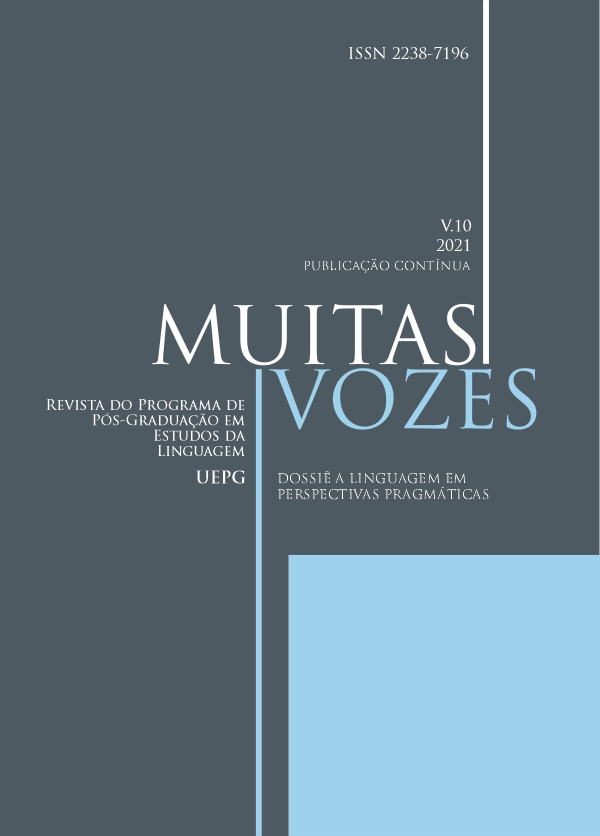RELEVANCE THEORY'S CONTRIBUTIONS TO HUMAN REASONING STUDIES
Abstract
This article highlights the contributions of Relevance Theory (RT) (1986/1995) to current studies of reasoning. It suggests that reasoning emerged from evolutionary and adaptive human processes and that inferences arise from heuristics occurring rapidly and without the explicit rationality described by Grice (1975). We begin by elucidating the pragmatics perspective on communication and proceed by presenting features of RT that have laid the foundations for theories of reasoning. Each section provides an overview of critical aspects, from the code and ostensive-inferential models to the role of attention in maximizing relevance, inferential processes, and knowledge transmission. Finally, we focus on reasoning from a relevance-oriented perspective and present influential theories that currently address the issue. We outline how dual-process theories describe the mental processes of reasoning by dividing them into two systems: intuitive and deliberative. Mercier and Sperber evaluate these systems in the Argumentative Theory of Reasoning (MERCIER; SPERBER, 2011, 2021; SPERBER; MERCIER, 2017), which employs relevance-theoretic assumptions. Corroborating with this perspective, we argue that rationality is a kind of intuitive inference that emerged from human sociability with argumentative purposes to support social and communicative functions.
Downloads
Downloads
Published
How to Cite
Issue
Section
License

Este obra está licenciado com uma Licença Creative Commons Atribuição 4.0 Internacional.
Transferência de direitos autorais: Caso o artigo submetido seja aprovado para publicação, JÁ FICA ACORDADO QUE o autor AUTORIZA a UEPG a reproduzi-lo e publicá-lo na REVISTA MUITAS VOZES, entendendo-se os termos "reprodução" e "publicação" conforme definição respectivamente dos incisos VI e I do artigo 5° da Lei 9610/98. O ARTIGO poderá ser acessado tanto pela rede mundial de computadores (WWW - Internet), como pela versão impressa, sendo permitidas, A TÍTULO GRATUITO, a consulta e a reprodução de exemplar do ARTIGO para uso próprio de quem a consulta. ESSA autorização de publicação não tem limitação de tempo, FICANDO A UEPG responsável pela manutenção da identificação DO AUTOR do ARTIGO.



